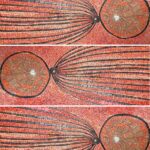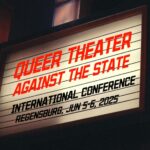 Zweites Forum Geschlechtergeschichte/n für Dissertant:innen und Forscher:innen in Österreich und angrenzenden Regionen; Heidrun Zettelbauer und Katharina Scharf (Graz)
Zweites Forum Geschlechtergeschichte/n für Dissertant:innen und Forscher:innen in Österreich und angrenzenden Regionen; Heidrun Zettelbauer und Katharina Scharf (Graz)
Zeit|Time: 23.-24.10.2025
Ort|Venue: Univ. Graz
Einreichfrist|Proposals und Anmeldung|Registration by: 27.04.2025 (Formular als PDF)
„Geschlechtergeschichte ist gekommen, um zu bleiben“. Ganz im Sinne dieses Eröffnungszitats der ersten Ausgabe des Forums 2024 in Innsbruck zielt die Weiterführung des Forums Geschlechtergeschichte/n in Graz im Oktober 2025 auf die weitere nachhaltige Vernetzung innerhalb der Geschlechtergeschichte in Österreich und angrenzenden Regionen ab. Im Zentrum des Workshops stehen erneut die Diskussion von Dissertationsprojekten in den Bereichen Geschlechtergeschichte, Queer History und intersektionale Geschichte sowie der strukturierte Austausch mit Geschlechter- und Queerhistoriker:innen untereinander. Das Forum bietet wieder einen Raum für die Diskussion von – im weitesten Sinne – geschlechterhistorisch ausgerichteten Dissertationsprojekten aus allen Epochen und historischen Teildisziplinen. Darüber hinaus widmet sich das Forum erstmals auch einem Schwerpunktthema – konkret der vielfältigen Verschränkung von Raum und Geschlechtern in der Geschichte. Weiterlesen … (PDF)
Gender Histories: Spaces and Relationships
“Gender history is here to stay.” In line with this opening statement from the first edition of the Forum in 2024 in Innsbruck, the continuation of the Forum Gender Histories in Graz in October 2025 aims to strengthen further sustainable networking within gender history research in Austria and neighboring regions. The workshop will once again focus on discussing dissertation projects in the fields of gender history, queer history, and intersectional history, as well as facilitating structured exchanges between gender and queer historians. This year’s Forum will again provide a space for discussing dissertation projects broadly focused on gender history across all historical epochs and subfields. Additionally, for the first time, the Forum will introduce a thematic focus—specifically, the diverse interconnections between space and gender in history. Read more … (PDF)
Programm des Ersten Forums Geschlechtergeschichte/n im Oktober 2024 in Innsbruck (Web)

 2. Österreichischer Bibliothekskongress 2025: „Bibliotheken: demokratisch – divers – nachhaltig“
2. Österreichischer Bibliothekskongress 2025: „Bibliotheken: demokratisch – divers – nachhaltig“ Project „Light On! Queer Literatures and Cultures under Socialism“, Univ. of Regensburg, Tatiana Klepikova
Project „Light On! Queer Literatures and Cultures under Socialism“, Univ. of Regensburg, Tatiana Klepikova